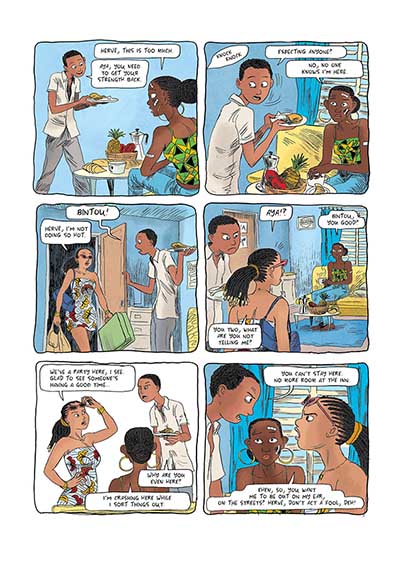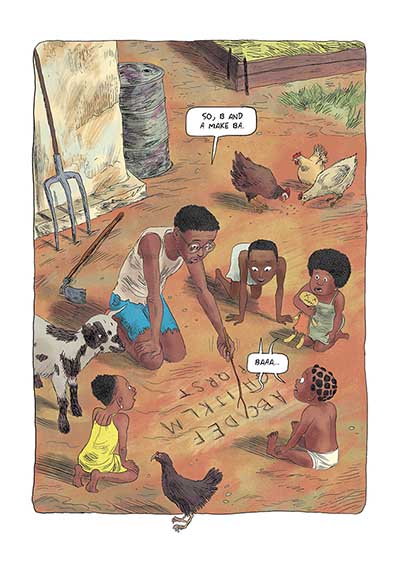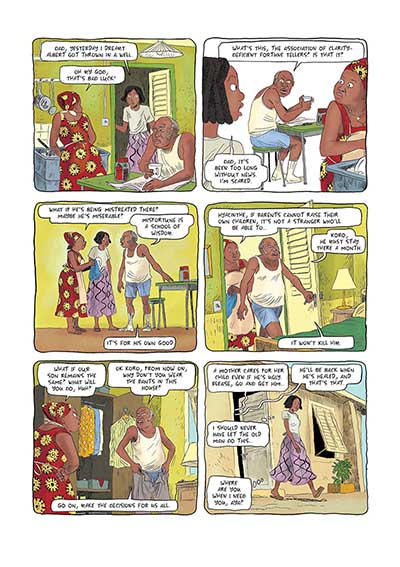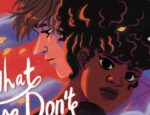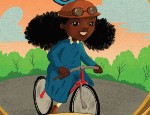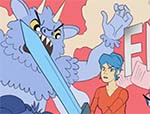The last time we saw Aya, much had changed in the life of the young woman and her friends on the Ivory Coast. Claws Come Out was a great, if pithy title, because of how effectively it spoke about adulthood, relationships, and the shifting loyalties that come into play when people start to grow up and re-evaluate their priorities. It ended with a cliffhanger, which effectively means that Marguerite Abouet and Clément Oubrerie’s Aya: Face the Music will be a lot less meaningful for anyone who hasn’t been following this gorgeous series.
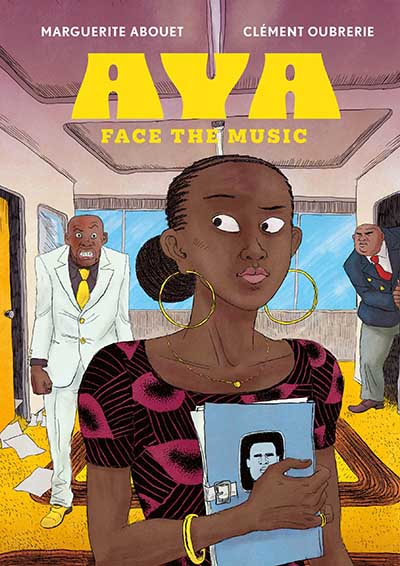
This isn’t to say first-time readers should avoid it, given that it still works as a slice-of-life narrative. However, without the back history of these colourful characters, much of the action may seem almost arbitrary — the subplots about homosexuality, multiple affairs, fickleness of fame, and lots more that is sometimes difficult to keep up with given how so much has happened to these people over the years.
For those who have been keeping track—and have back copies handy for a quick refresher course—Aya is trying to make sense of her last act of bravado, a protest against housing conditions that have led to her incarceration. It isn’t an easy situation for anyone to grapple with, let alone someone who has wilfully kept her head on her shoulders even as her friends have gone out of their way to ignore common sense. Things aren’t exactly going well for everyone else in her orbit either, as her friend Albert finds himself trapped by a healer, Bintou continues to struggle with the backlash against her newfound celebrity, and Inno goes up against the French legal system one more time.
A lot of what made the earlier books so delightful has stayed the same: the local proverbs, gorgeously coloured panels, and effortless humour are all in place, the latter thanks to translator Edwige Renée Dro. It’s also interesting to see how the art faithfully reflects these characters ageing, when one compares their faces in the early comics to their maturity here.
There are many reasons why this great comic continues to enthral, but primary among them is the intelligence with which it navigates the history of Yopougon-Koute, or Yop City, at a time when Côte d’Ivoire was starting to come to terms with life after its colonization by France. What Abouet and Oubrerie show us, even as we may passively observe the lives and times of their protagonist, is the nuances at play in a society on the cusp of change. One can see how gender dynamics evolve, with men trying to hold on to rights that are dismissed as more women choose education and the promise of freedom. The nature of family changes too, as tight knit communities fracture and outside influences challenge traditional beliefs.
Ultimately, the biggest lesson one takes away from it all is that external circumstances may change, but there are always some universalities when it comes to defining what makes us human. If only all historical and sociological lessons were as charming.
Marguerite Abouet (W), Clément Oubrerie (A), Edwige Renée Dro (T) • Drawn and Quarterly, $24.95
Buy Aya: Face the Music online here
Review by Lindsay Pereira





